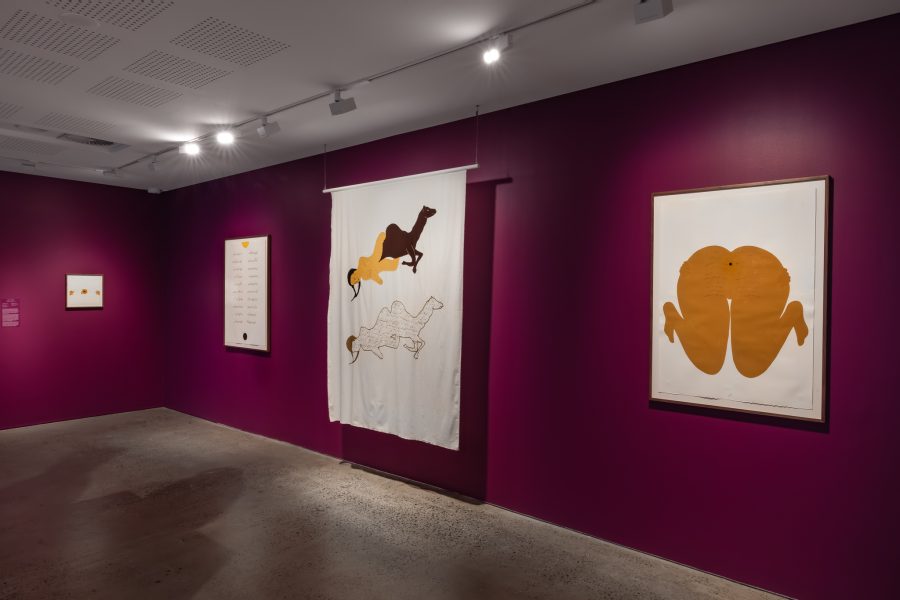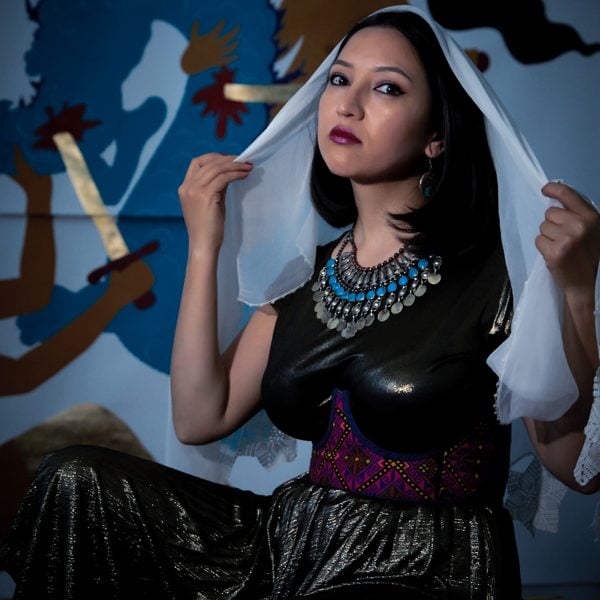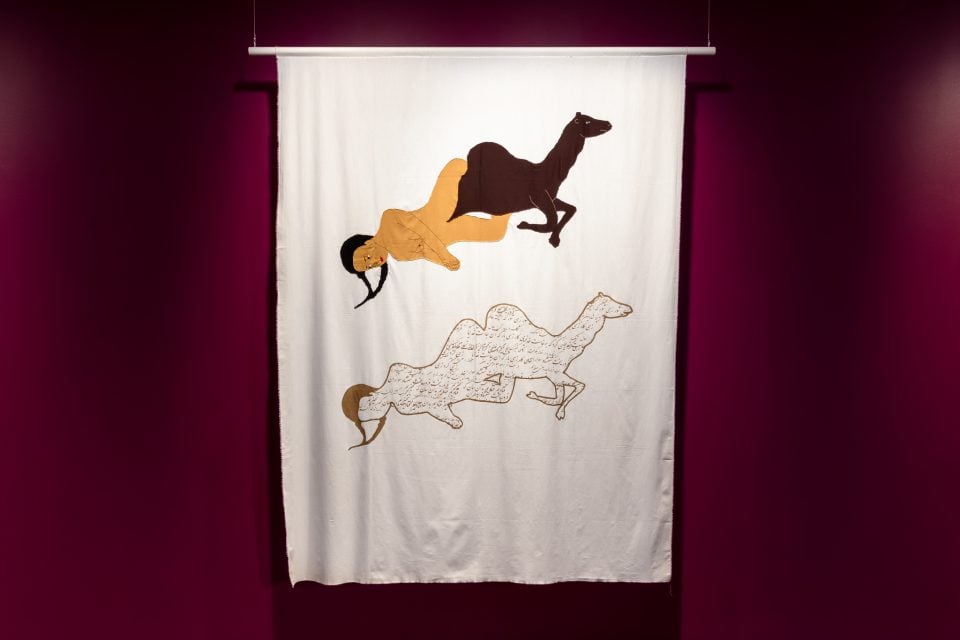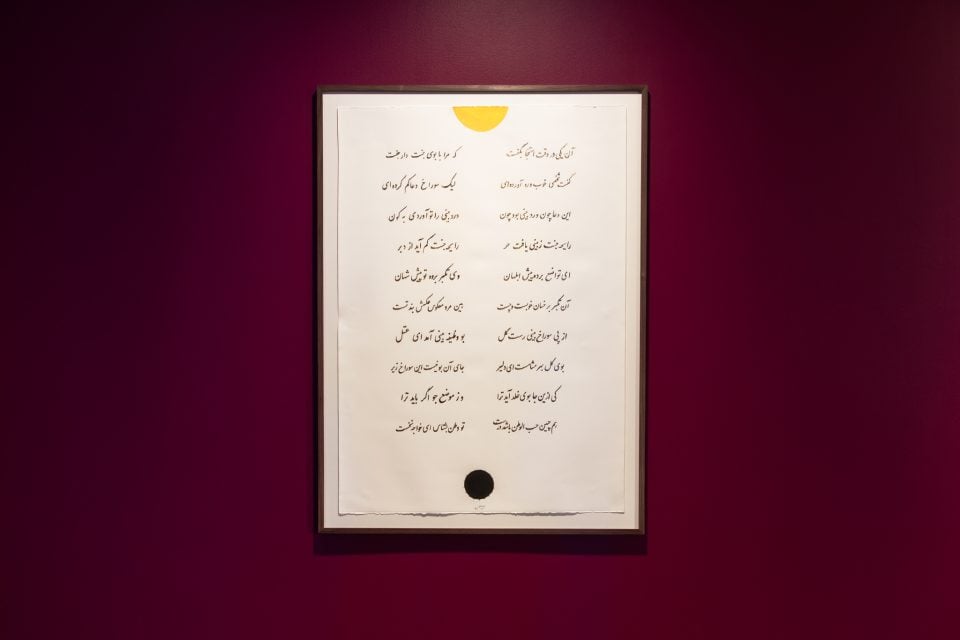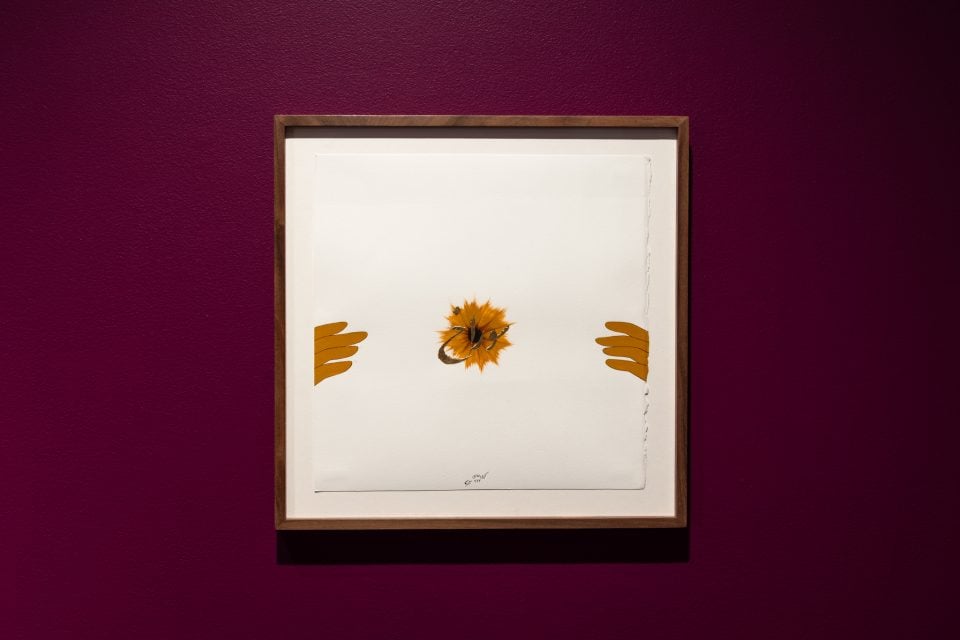UNSW Galleries
The birth giving #4, 2021
mixed media
Sans titre (Hole #1), 2022
gouache on paper
Sans titre (Hole #2), 2022
gouache on paper
Sans titre (Hole #4), 2022
gouache on paper
Courtesy the artist and Galerie Eric Mouchet, Paris
Having grown up in a society where women’s lives have been separated so neatly from those of men, Afghanistani artist Kubra Khademi sees women’s spaces as poetic, liberated worlds trapped within a broader, more brutal one. “If you were to arrive in an Afghan village,” the artist explains, “you would think that the women are so repressed there, but you would be wrong.”
Describing the ease and humour of the discussions between her mother, aunties, and their friends when talking about sex, Khademi’s works are a spirited retaliation against the patriarchal order, adorned with the lyrical and lurid poetry of the 13th-century Sufi mystic and Islamic scholar Rumi. Erasing men from her gouache works, as they are in the crude and coded conversations held between Afghanistani women, Khademi understands this oral tradition as creating a kind of feminine universe rich in metaphor, satire, and sexuality.
Each figure and naked bottom are unashamedly full-frontal, explicitly mocking the imagined piety and sacredness of women, whom men claim to revere yet continually disregard. Khademi, now based in Paris, is free from the constraints of her youth, and yet inspired by the wisdom of those still held by them, her work appearing both divine and profane.
